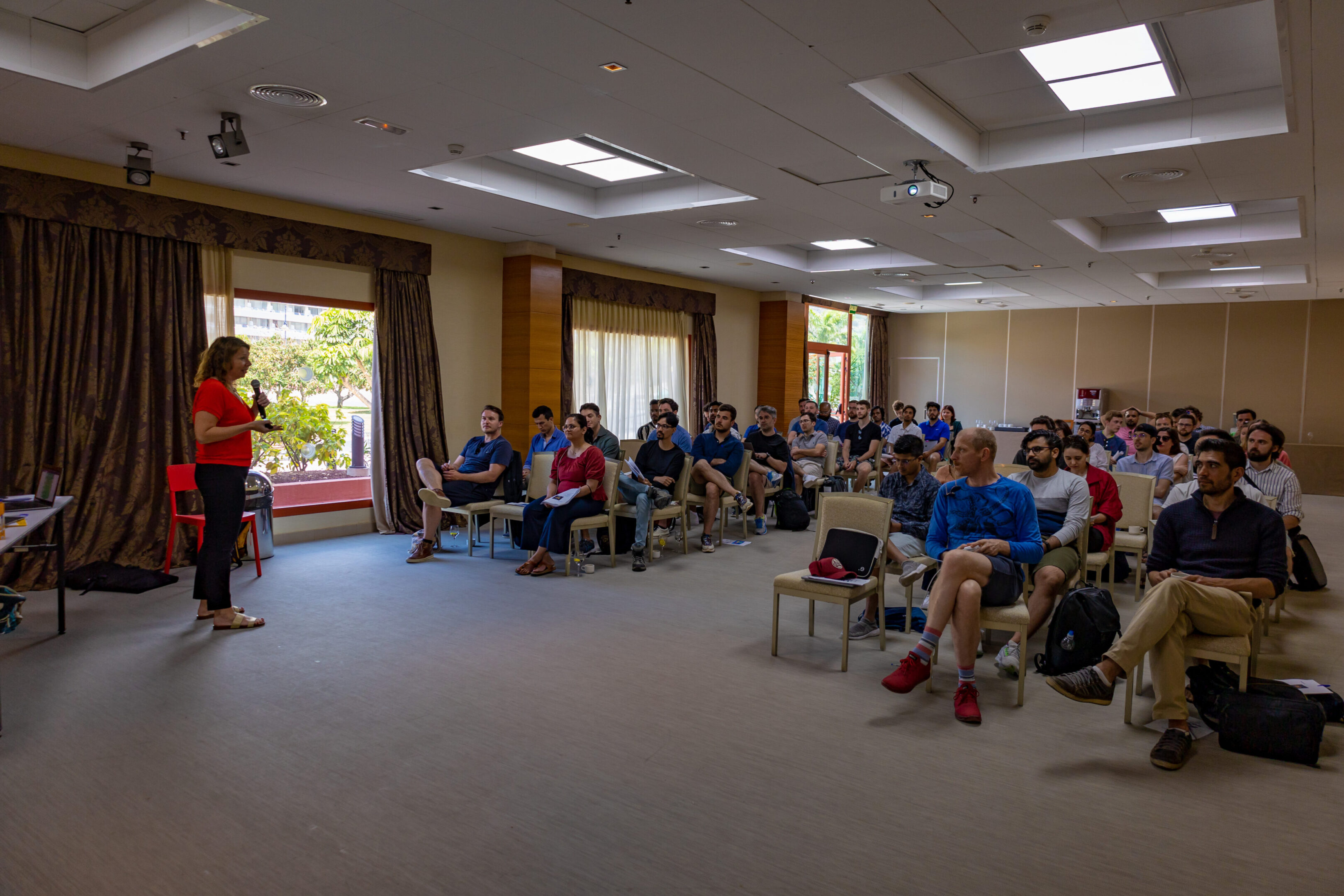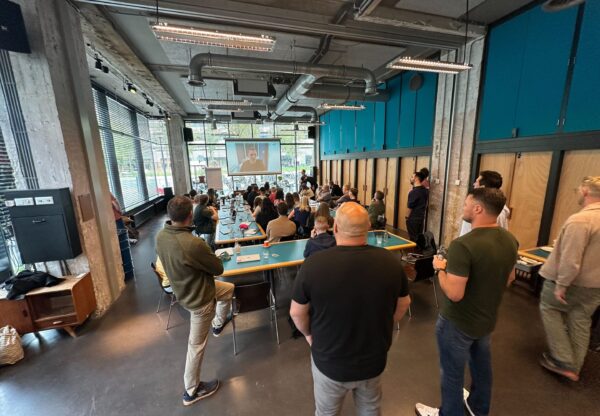Team meetings are crucial for collaboration, problem-solving, and driving projects forward. However, making these meetings effective and engaging can sometimes be challenging. One way to enhance your team meetings is by incorporating thoughtful check in questions. These questions not only set a positive tone but also help team members connect on a personal level, share their current state of mind, and align on goals.
In this article, we’ll explore 15 impactful check in questions designed to foster engagement, improve communication, and strengthen team dynamics.
1. What’s one personal achievement you’re proud of this week?
This question encourages team members to share their successes and build a culture of recognition. It highlights individual contributions and boosts morale.
Implementation tips:
- Allocate a few minutes at the start of the meeting for this sharing.
- Consider having a “shout-out” segment where achievements are recognized.
Example: During a weekly team meeting, one member might share their successful completion of a challenging project, leading to applause and positive reinforcement from colleagues.
2. What’s a challenge you’re facing right now?
Asking about current challenges allows team members to discuss obstacles they are encountering and seek support or advice from the group.
Implementation tips:
- Create a safe space where members feel comfortable discussing difficulties.
- Use this as an opportunity to brainstorm solutions collectively.
Example: A team member might mention difficulty with a task due to lack of resources, prompting a collaborative discussion to address the issue and offer solutions.
3. What’s one thing you’re excited about this week?
This question shifts the focus to positive aspects and upcoming events, fostering enthusiasm and a forward-looking mindset.
Implementation tips:
- Encourage team members to share personal and professional excitements.
- Relate shared excitements to project goals or team activities.
Example: An employee might express excitement about an upcoming team-building event, which can be a topic of discussion and further engagement.
4. How are you feeling about your workload right now?
This question helps gauge how team members are managing their tasks and if they need additional support or resources.
Implementation tips:
- Follow up with actionable steps if someone expresses feeling overwhelmed.
- Use this feedback to adjust workloads or provide additional help.
Example: If someone reports feeling overloaded, the team leader might reassign tasks or provide extra support to alleviate the burden.
5. What’s one thing you’d like to improve in our team dynamics?
This question promotes an open dialogue about team processes and encourages continuous improvement in how the team functions.

Implementation Tips:
- Encourage honest feedback and constructive suggestions.
- Address valid concerns in subsequent meetings or one-on-one discussions.
Example: A team member might suggest improving communication channels, leading to a discussion about implementing new tools or practices.
Check out our testimonials on how team retreats improve team dynamics. More than 3,000 companies are using NextRetreat.
6. What’s one skill or knowledge area you’d like to develop?
This question highlights individual growth aspirations and can help align personal development goals with team objectives.
Implementation tips:
- Discuss potential training or development opportunities.
- Encourage team members to share and support each other’s growth plans.
Example: An employee might express interest in learning a new software tool, prompting the team to explore training options or share resources.
7. How can we better support you in achieving your goals?
This question focuses on providing the necessary resources, feedback, or adjustments needed for team members to reach their goals.
Implementation tips:
- Collect and act on feedback to improve team support mechanisms.
- Foster an environment where team members feel comfortable voicing their needs.
Example: A team member might request more frequent check ins or feedback, leading to a revised support plan to meet their needs.
8. What’s a recent positive experience you’ve had with a colleague?
This question highlights positive interactions and reinforces a culture of appreciation and collaboration within the team.

Implementation tips:
- Encourage detailed sharing to help others understand the positive experiences.
- Use these examples to promote similar behaviors and interactions.
Example: An employee might recount a helpful collaboration with a colleague, which can be celebrated and serve as a model for future interactions.
9. What’s one thing you’re grateful for at work?
Focusing on gratitude can enhance team morale and create a more positive work environment.
Implementation tips:
- Keep the tone light and appreciative.
- Share these moments of gratitude to strengthen team bonds.
Example: A team member might express gratitude for a supportive manager, fostering a culture of appreciation and positive reinforcement.
10. How do you feel about our current team goals and projects?
This question allows team members to share their perspectives on ongoing work and alignment with team objectives.
Implementation tips:
- Use this feedback to address any misalignments or concerns.
- Ensure that everyone feels their input is valued and considered.
Example: An employee might voice concerns about a project timeline, leading to a review of deadlines and potential adjustments to improve feasibility.
11. What’s one way we could make our meetings more effective?
Gathering feedback on meeting effectiveness helps refine processes and ensures that meetings are productive and relevant.
Implementation tips:
- Implement practical suggestions to enhance meeting structure and content.
- Regularly review and adjust meeting practices based on feedback.
Example: A team member might suggest incorporating more interactive elements, such as breakout sessions or live polls, to increase engagement.
12. What’s something new you’ve learned recently?
Sharing new knowledge or skills promotes continuous learning and can inspire others to pursue their own development.
Implementation tips:
- Encourage team members to share both personal and professional learnings.
- Relate new knowledge to team projects or goals where applicable.
Example: An employee might share a recent certification or new tool they’ve learned, which could benefit the team and spark further learning opportunities.
13. What’s a recent team success you’d like to highlight?
Celebrating successes helps build a positive atmosphere and reinforces the value of teamwork and collaboration.
Implementation tips:
- Highlight individual and team achievements to foster a sense of accomplishment.
- Use successes as motivational tools for future projects.
Example: A team member might highlight a successful client presentation, leading to recognition and discussion of strategies that contributed to the success.
14. What’s one change you’d like to see in our work environment?
This question helps identify potential improvements in the workplace that could enhance productivity and employee satisfaction.
Implementation tips:
- Evaluate suggestions for feasibility and impact.
- Act on reasonable changes to demonstrate responsiveness and commitment to improvement.
Example: An employee might suggest a more collaborative workspace setup, prompting a review of office layout and possible adjustments.
15. How can we better recognize and reward achievements within the team?
This question focuses on improving recognition practices to ensure that accomplishments are celebrated and appreciated.
Implementation tips:
- Discuss and implement strategies for recognizing achievements.
- Regularly review and adjust recognition practices based on team feedback.
Example: The team might discuss creating a formal recognition program or introducing more informal ways to acknowledge contributions.

How to create a safe and open environment for this discussion
Creating a safe and open environment is crucial for effective team meetings and discussions. By fostering an atmosphere of trust and respect, you encourage team members to share their thoughts and feedback openly.
- Show respect and value everyone’s opinions to build a foundation of trust.
- Establish norms for respectful dialogue and clarify the discussion’s purpose.
- Listen attentively without judgment and acknowledge each contribution.
- Choose a neutral, relaxed space and ensure a supportive physical setup.
- Use open-ended questions and focus on constructive feedback.
- Address issues early and encourage problem-solving rather than blame.
- Offer confidential channels for feedback and handle sensitive information discreetly.
- Involve quieter members and ensure balanced participation among all team members.

The power of engaging check in questions for team meetings
Effective team meetings are key to maintaining productivity, fostering collaboration, and enhancing employee satisfaction. Incorporating these check in questions into your meetings can create a more engaging and supportive environment where team members feel valued and connected.
Tailoring these questions to suit your team’s needs and dynamics will help ensure that your meetings are not only productive but also enjoyable. Engaging check in questions encourage open communication, strengthen relationships, and contribute to a positive work culture. So, the next time you plan a team meeting, consider integrating these check in questions to make your sessions more meaningful and impactful.
If you’re interested in changing the scenery of a team meeting, check out our hand-picked locations for teams or get in touch with our retreat specialists for a free consultation.



